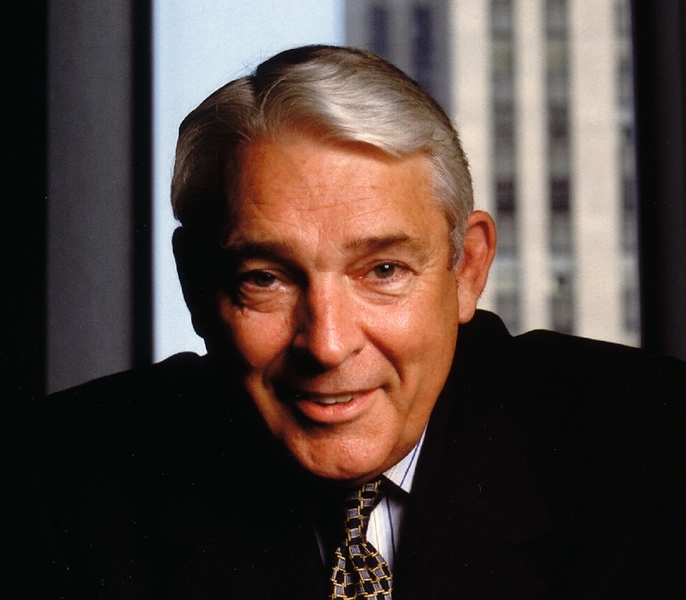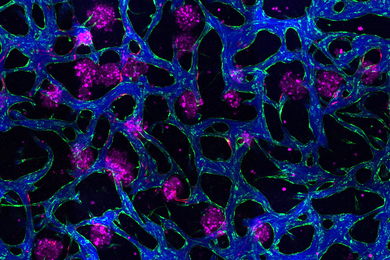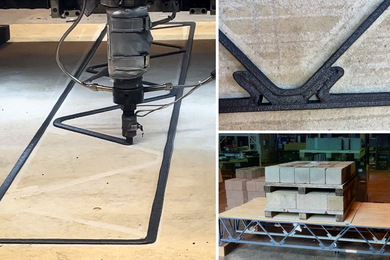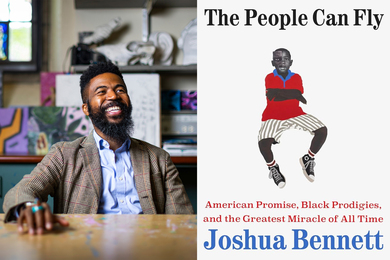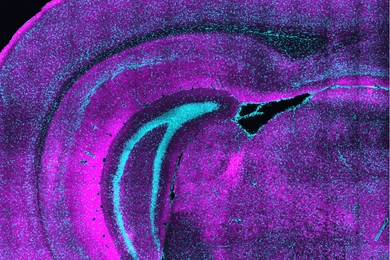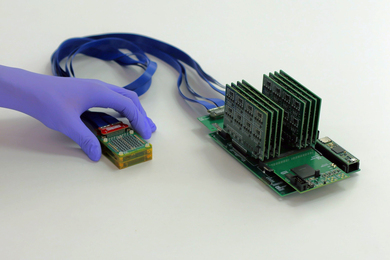Dana Mead, chairman of the MIT Corporation since 2003, announced today at the group’s quarterly meeting that he will step down from the post at the end of June.
The bylaws of the Corporation, the Institute’s board of trustees, require that a member cannot serve past the age of 75; Mead will turn 75 during the next academic year. A member since 1996, Mead is the ninth chairman of the Corporation.
“I will miss working in this very vibrant and dynamic environment — the students, faculty, administrators, alumni and the like,” said Mead PhD ’67.
President Susan Hockfield expressed gratitude for Mead’s contributions to MIT as chairman of the Corporation. “His astute powers of analysis, deep knowledge of governance and keen instincts in working with people have immeasurably benefited the Institute,” she said.
“In all of his work at MIT, Dr. Mead's great respect and deep affection for our mission and its practical application shine brilliantly. I am grateful for his service to MIT and his invaluable guidance in my presidency."
The Corporation’s executive committee is in the process of identifying a nominee to serve as Mead’s successor. The search will continue through the spring with the expectation that the new chair will be elected at the Corporation’s meeting in March or June, according to Kirk D. Kolenbrander, vice president for Institute affairs and secretary of the Corporation.
Mead hopes his successor will “continue the success that MIT has enjoyed in its position as an institution of excellence.”
During his tenure, Mead focused on transforming the Corporation’s membership to reflect more accurately the composition of the student body and faculty. As a result, the number of women serving as Corporation members grew by around 50 percent during his tenure. Representation by foreign members also increased by almost half during the same period.
But to many, Mead’s greatest accomplishment as chairman was overseeing the search in 2004 that brought President Hockfield to the Institute.
As chairman, Mead also created the Corporation’s investment management company in 2004 and oversaw the successful reorganization of the Corporation’s financial management during the recent financial crisis. He also worked to increase the professionalism and effectiveness of the Corporation’s 31 visiting committees, which operate as advisory groups to the Corporation and the administration.
“A tireless supporter of the Corporation’s visiting committee structure, he has also been committed to bringing new members into the Corporation and sustaining existing members,” Kolenbrander said.
Mead hopes his successor will continue to strengthen the Corporation’s visiting committees. “The vitality of the governance of the Corporation through the various visiting committees is important,” he said.
According to Mead, the new chair should also focus on developing the resources to continue and expand the Corporation’s initiatives for the convergence of the life sciences with physical sciences and engineering at the Institute.
A career of service
Before being elected chairman, Mead served on visiting committees for the Engineering Systems Division and the Department of Political Science and chaired the Nuclear Engineering Visiting Committee.
In October, he received MIT’s highest alumni honor, the Bronze Beaver Award. Mead earned a Ph.D. in political science and economics from MIT in 1967. Also in October, he was inducted into the American Academy of Arts and Sciences.
Mead received a BS in engineering from West Point in 1957 and served with distinction in Army line armor and airborne units from 1957 to 1970. He did tours in West Germany and Vietnam and was an assistant professor at West Point.
He served in the White House from 1970 to 1974, first as a White House Fellow, and then as associate and later deputy director of the Domestic Council. He then returned to West Point and was a tenured professor and deputy head of the Social Sciences Department until 1978.
From 1994 to 1999, Mead was chairman and CEO of Tenneco Inc., a large conglomerate in oil and gas transmission, nuclear shipbuilding, auto parts, packaging, chemicals, raw materials and farm and construction equipment.
While at Tenneco, he opened operations in 18 countries in South America, Asia and Europe. He chaired the National Association of Manufacturers from 1995 to 1997 and the Business Roundtable from 1998 through 1999, the first business leader elected to both prestigious positions by his peers.
Mead currently serves on the board of Pfizer Inc. and is a member of the Board of Governors of the Boys & Girls Clubs of America. He chaired the Executive Committee of the Citizens Development Corporation, which enables U.S. executives to assist developing countries. He serves on the Board of Advisors of the George C. Marshall Foundation, and the advisory boards for Pardee RAND Graduate School and the School of Public and Environmental Affairs at Indiana University. He is also a member of the Council on Foreign Relations.
The bylaws of the Corporation, the Institute’s board of trustees, require that a member cannot serve past the age of 75; Mead will turn 75 during the next academic year. A member since 1996, Mead is the ninth chairman of the Corporation.
“I will miss working in this very vibrant and dynamic environment — the students, faculty, administrators, alumni and the like,” said Mead PhD ’67.
President Susan Hockfield expressed gratitude for Mead’s contributions to MIT as chairman of the Corporation. “His astute powers of analysis, deep knowledge of governance and keen instincts in working with people have immeasurably benefited the Institute,” she said.
“In all of his work at MIT, Dr. Mead's great respect and deep affection for our mission and its practical application shine brilliantly. I am grateful for his service to MIT and his invaluable guidance in my presidency."
The Corporation’s executive committee is in the process of identifying a nominee to serve as Mead’s successor. The search will continue through the spring with the expectation that the new chair will be elected at the Corporation’s meeting in March or June, according to Kirk D. Kolenbrander, vice president for Institute affairs and secretary of the Corporation.
Mead hopes his successor will “continue the success that MIT has enjoyed in its position as an institution of excellence.”
During his tenure, Mead focused on transforming the Corporation’s membership to reflect more accurately the composition of the student body and faculty. As a result, the number of women serving as Corporation members grew by around 50 percent during his tenure. Representation by foreign members also increased by almost half during the same period.
But to many, Mead’s greatest accomplishment as chairman was overseeing the search in 2004 that brought President Hockfield to the Institute.
As chairman, Mead also created the Corporation’s investment management company in 2004 and oversaw the successful reorganization of the Corporation’s financial management during the recent financial crisis. He also worked to increase the professionalism and effectiveness of the Corporation’s 31 visiting committees, which operate as advisory groups to the Corporation and the administration.
“A tireless supporter of the Corporation’s visiting committee structure, he has also been committed to bringing new members into the Corporation and sustaining existing members,” Kolenbrander said.
Mead hopes his successor will continue to strengthen the Corporation’s visiting committees. “The vitality of the governance of the Corporation through the various visiting committees is important,” he said.
According to Mead, the new chair should also focus on developing the resources to continue and expand the Corporation’s initiatives for the convergence of the life sciences with physical sciences and engineering at the Institute.
A career of service
Before being elected chairman, Mead served on visiting committees for the Engineering Systems Division and the Department of Political Science and chaired the Nuclear Engineering Visiting Committee.
In October, he received MIT’s highest alumni honor, the Bronze Beaver Award. Mead earned a Ph.D. in political science and economics from MIT in 1967. Also in October, he was inducted into the American Academy of Arts and Sciences.
Mead received a BS in engineering from West Point in 1957 and served with distinction in Army line armor and airborne units from 1957 to 1970. He did tours in West Germany and Vietnam and was an assistant professor at West Point.
He served in the White House from 1970 to 1974, first as a White House Fellow, and then as associate and later deputy director of the Domestic Council. He then returned to West Point and was a tenured professor and deputy head of the Social Sciences Department until 1978.
From 1994 to 1999, Mead was chairman and CEO of Tenneco Inc., a large conglomerate in oil and gas transmission, nuclear shipbuilding, auto parts, packaging, chemicals, raw materials and farm and construction equipment.
While at Tenneco, he opened operations in 18 countries in South America, Asia and Europe. He chaired the National Association of Manufacturers from 1995 to 1997 and the Business Roundtable from 1998 through 1999, the first business leader elected to both prestigious positions by his peers.
Mead currently serves on the board of Pfizer Inc. and is a member of the Board of Governors of the Boys & Girls Clubs of America. He chaired the Executive Committee of the Citizens Development Corporation, which enables U.S. executives to assist developing countries. He serves on the Board of Advisors of the George C. Marshall Foundation, and the advisory boards for Pardee RAND Graduate School and the School of Public and Environmental Affairs at Indiana University. He is also a member of the Council on Foreign Relations.
